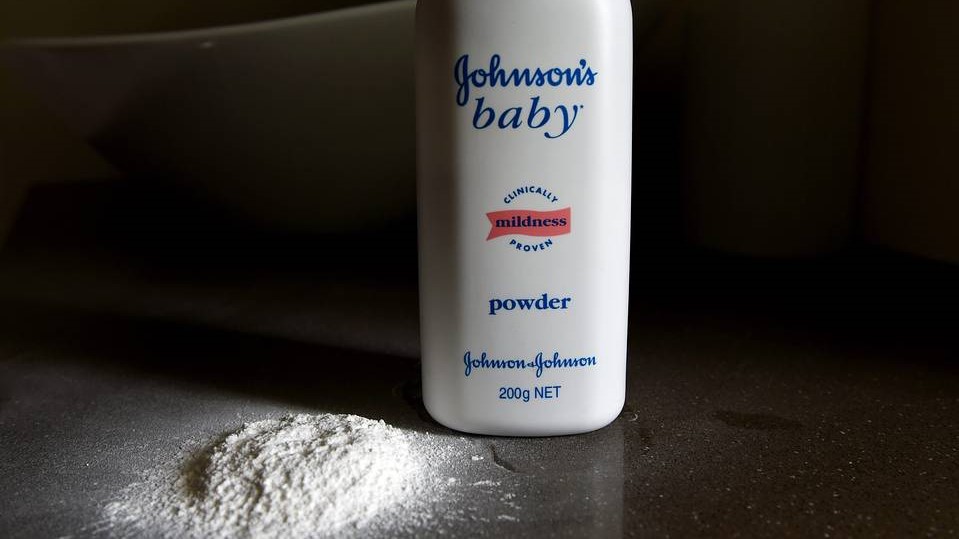According to these lawsuits, Johnson & Johnson knew about a link between talc and ovarian cancer since at least 1982, when researchers found that women using talcum-based powders had an increased risk of developing cancer; however, the company never placed a warning about this risk on its talcum powders, and, in fact, continues to promote these products for the exact uses that may put women at risk for cancer, according to the lawsuits.
If you or a loved one has been diagnosed with ovarian cancer after using talcum powder, you may be able to sue the manufacturer to recover compensation for medical bills and other damages.
Contact us today – free of charge – by filling out the form on this page and we may be able to connect you to an attorney who can help.
Is This a Class Action Lawsuit?
Attorneys working with ClassAction.org are handling these cases on an individual basis and not as part of any class action lawsuit. This means you will be filing your own lawsuit with your own attorney and making claims specific to your situation.
In cases involving serious medical conditions, individual lawsuits – rather than class actions – are typically filed to help ensure the person filing the case is fully compensated for their injuries. You can learn more about this here.
What Does Filing a Lawsuit Involve?
The lawsuit process typically kicks off with the filing of what’s known as a complaint. This document, which is filed with the court, will detail the ovarian cancer diagnosis, the plaintiff’s use of a specific J&J product or products, the allegations being made against the company, and the damages (i.e., losses) that have been incurred as a result of the diagnosis.
Your lawsuit may claim, for instance, that Johnson & Johnson:
- Failed to provide warnings that use of its talcum powder products near the genital organs could increase the user’s risk of developing ovarian cancer
- Disseminated false and misleading statements about the safety of its products
- Continued to sell products that it knew were unreasonably dangerous in order to increase and maintain profits
- Could have used safer alternatives to talc, such as cornstarch
- Should be held responsible for losses related to the diagnosis, including medical bills and pain and suffering
What Could I Get from a Lawsuit?
A lawsuit could provide compensation for the following:
- Medical bills
- Emotional suffering
- Physical pain
- Lost wages
- Loss of life’s enjoyment
In the event of death, compensation for funeral expenses, loss of expected wages and loss of consortium (i.e., benefits of a familial relationship, such as love, affection and comfort) may also be available.
How Much Does It Cost to File a Lawsuit?
Attorneys working with ClassAction.org are handling these cases on a contingency fee basis, meaning you only pay if they win your case. Their payment will come as a percentage of your total settlement or jury verdict.
How Can Talcum Powder Cause Cancer?
It is believed that when talcum powder is used near the genitals, talc particles can travel up the reproductive tract and enter the ovaries. Because the body has a difficult time removing the talc particles, they may remain in the ovarian tissue and cause inflammation, which may cause cancerous tumors to form.
Studies Link Ovarian Cancer to Talcum Powder Use
During the last several decades, researchers have performed nearly two dozen studies on talcum powder, almost all of which concluded that women using talc near the genitals are at an increased risk for developing cancer.
The first study to suggest a possible link between talcum powder and ovarian cancer was published in 1971. In that study, researchers found that women who used these powders near the genitals had talc particles “deeply embedded” in a majority of their ovarian tumors and about half of their cervical tumors.
In following years, more than 20 additional studies have had similar outcomes. While some of these studies found that women were at a 30 percent increased risk of developing ovarian cancer after using talcum powder, some suggested that this risk may be as high as 300 percent. The most recent meta-analyses of these studies, published in 2003 in the International Journal of Cancer Research and Treatment, found that talcum powder use was associated with a 33 percent increased risk of developing ovarian cancer.
What You Can Do
If you or a loved one developed ovarian cancer after using Johnson & Johnson’s baby powder or shower-to-shower product, you may be able to file a lawsuit and recover compensation for the harm you suffered.
For more information on filing a lawsuit, contact us today by filling out the form on this page. It doesn’t cost anything to get in touch or to speak to someone about your rights.
